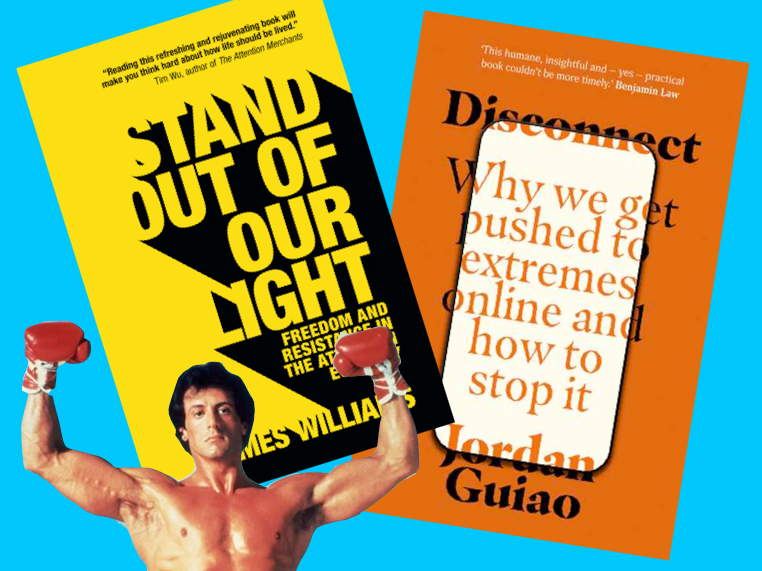
I read some absolute gems.
I’m a firm believer that a good book can change your life. This is why I make time to read every day.
As Australian actor Francis Greenslade advises in his book How I Learnt to Act:
“Read novels and plays and poetry. Read everything. I can’t stress this enough. Reading gives you so, so much. The more you read, the more new ideas you absorb, and the more new situations you experience . . .
The more you read, the greater your powers of concentration. What’s even more beautiful about reading is that it puts you into the head of someone else. It forces you to abandon your view of the world and take on anothers. In other words reading gives you empathy . . .
And it’s never too late to start. Read a book and you’ll become a better actor. But Snapchat and glossy magazines and online games – they don’t give you anything.”
1. Dopamine Nation: Finding Balance in the Age of Indulgence by Dr Anna Lembke
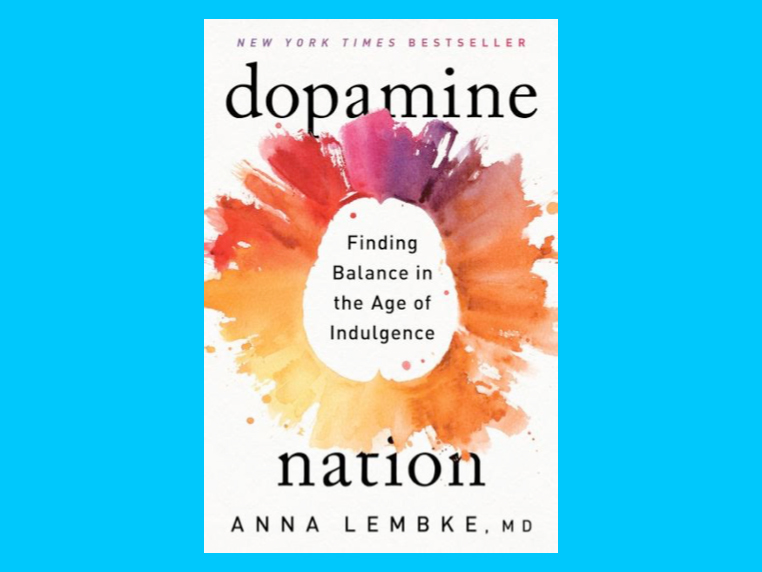
In Dopamine Nation Psychiatrist Dr Anna Lembke argues that in the modern world most of us are running from pain. Whether we’re numbing ourselves with drugs, bingeing on Netflix, gambling, or compulsively shopping online, we’re “distracting ourselves from ourselves”. Lembke states:
“The reason we’re all so miserable may be because we’re working so hard to avoid being miserable.”
Dr Lembke shows readers a path to living a more authentic and fulfilling life.
Spoiler alert: the good life isn’t about having whatever you want, whenever you want. It’s about embracing the discomfort of the present moment and giving our dopamine receptors a chance to regenerate.
2. Stand Out of Our Light: Freedom and Resistance in the Attention Economy by James Williams
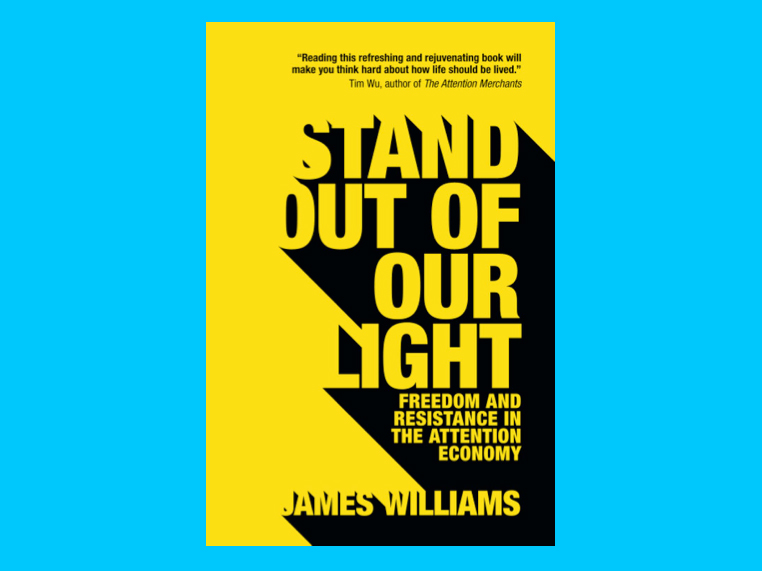
Ex-Google strategist turned philosopher James Williams has written a brilliant book on the importance of reclaiming your attention and fighting back against the persuasive techniques used by the attention economy (i.e., big tech companies).
This book helped me to clearly see that the goals of big tech companies are not aligned with my personal goals. These companies do not have our best interests at heart. Williams argues if you want to be truly free and reclaim your capacity to think, you need to extract yourself from these machines of industrialised persuasion.
3. Stolen Focus: Why You Can’t Pay Attention – and How to Think Deeply Again by Johann Hari
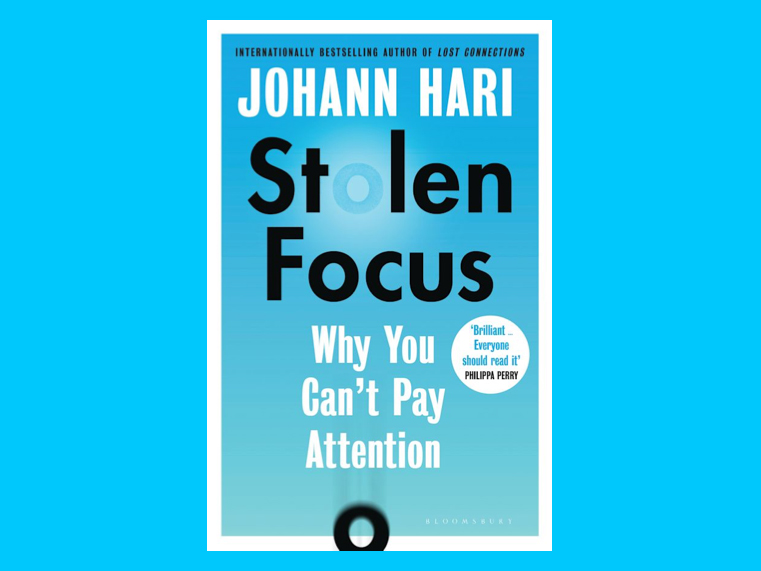
Johann Hari deserves an honorary doctorate for this literary masterpiece. In Stolen Focus, Hari travels the world interviewing experts to understand why our ability to focus has degraded and what can be done about it.
This is a complex, multipronged problem. Hari argues that we need systemic change to solve this crisis of attention (individual action won’t cut it). And this crisis of attention desperately needs our attention. If we stand any chance of solving the major issues we currently face (e.g., climate change), we need to build a social movement to reclaim our attention.
4. Mindful Self-Discipline: Living with Purpose and Achieving Your Goals in a World of Distractions by Giovanni Dienstmann

Being self-disciplined is the key to achieving your goals. But with just one click, you can get sucked into a world of instant gratification. How can you cultivate greater self-discipline in the age of distraction?
Giovanni Dienstmann has thought deeply about this question. In Mindful Self-Discipline he explores the many aspects to cultivating self-discipline. Topics include avoiding the trap of easy dopamine, creating a focus-friendly environment, letting go of unfair comparisons, and cultivating time awareness. This is the best self-help book I have read in a long time. I highly recommend it.
5. Time Wise: Powerful Habits, More Time, Greater Joy by Dr Amantha Imber
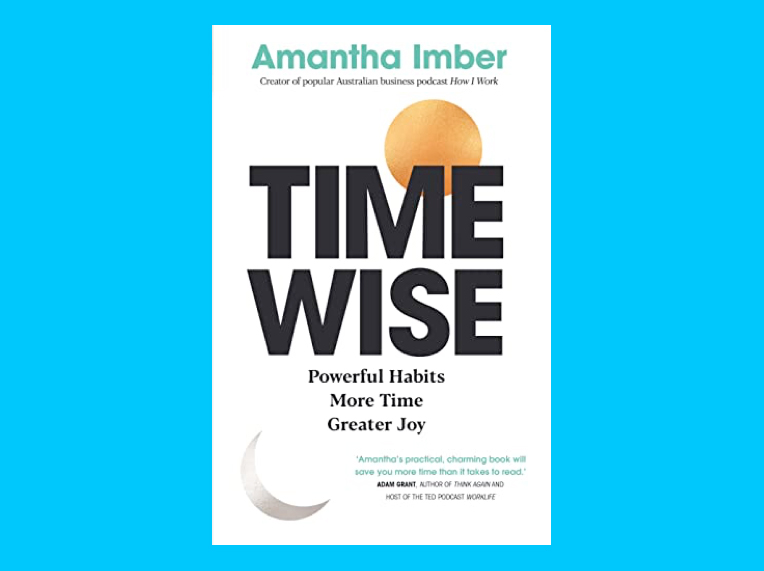
I’m a little sceptical of most productivity and time management books, but I enjoyed reading this book by Dr Amantha Imber. It’s a collection of strategies gathered from her popular podcast ‘How I work’.
I particularly liked the strategies presented to deal with addictive technology.
Some of my favourite strategies included:
• Putting rubber bands horizontally across your phone screen: this acts as a physical barrier to checking your phone.
• Solitude deprivation: Having time to be alone with your thoughts (no inputs from technology). This involves planning when you want to receive inputs from your phone and other devices.
• Creating stopping cues: Social media companies use strategies to keep you scrolling and clicking. To combat features like the infinite scroll, you can create your own stopping cues (e.g., having a set time to log off).
6. Move the Body, Heal the Mind: Overcome Anxiety, Depression, and Dementia and Improve Focus, Creativity, and Sleep by Dr Jennifer Heisz by Dr Jennifer Heisz

Over the years I’ve read a lot of books on the benefits of exercise but this book tops the list!
Neuroscientist Dr Jennifer Hiesz does a superb job presenting the science behind what exercise does for brain health, mental health, and preventing dementia.
Reading this book was like having a light bulb go off in my head. It gave me a deeper appreciation of exercise and how it has helped me to reduce anxiety, keep depression at bay, enhance my focus, and get through challenging times.
7. Disconnect: Why We Get Pushed to Extremes Online and How to Stop it by Jordan Guiao
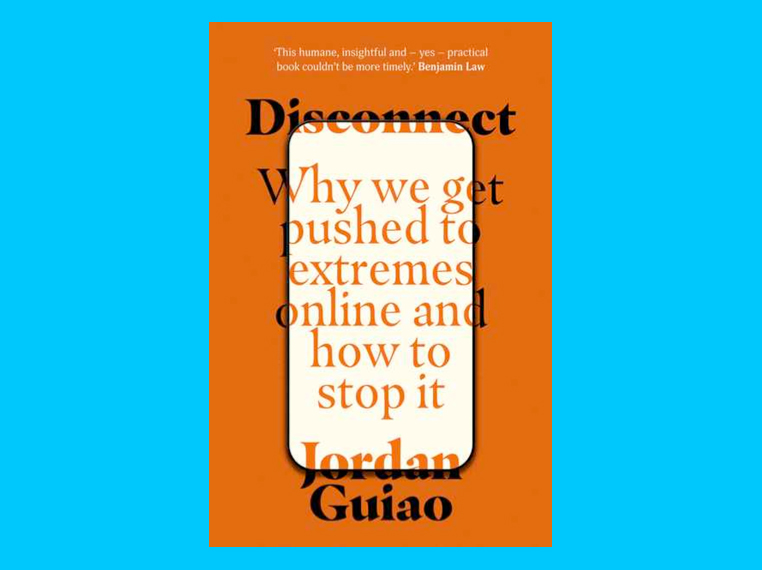
This year I have had more conversations with people who believe in conspiracy theories than in the previous 10 years of my life. It’s alarming. How did we get here?
If you know someone who has fallen down conspiracy theory rabbit holes, this book will help you understand how this happens and what you can do to help your loved ones. Guiao also explores a number of other Internet related issues including social media narcissists, naïve futurists, hateful trolls, and dating app pests.
So, there you have it! Those are my favourite nonfiction books for 2022. They were packed full of life changing strategies and wisdom. I’m grateful to these authors for sharing their ideas with the world.
What books did you enjoy reading this year?
I’d love to hear your recommendations.
Share This:
As someone who loves to read, I always look for great books to add to my shelves and the growing pile of books next to my bed. Over the past year, I’ve stumbled upon some amazing books that I’m excited to share with you.
Whether you’re looking to enhance your thinking, organise your life, create new habits, or get absorbed in an inspiring story, this list has something for everyone.
Here are nine standout books from my 2024 reading list that are well worth your time.
Let me know which ones you’re excited to pick up—and don’t forget to share your recommendations with me. Let’s go!
“We use our brains entirely too much – to the detriment of our ability to think intelligently. What we need to do is think outside the brain.”
There’s an old assumption that thinking happens inside the brain. But this book blows that assumption apart. Annie Murphy Paul presents compelling research that shows there are many ways we can use the world around us to improve our ability to think, learn, and unleash creative ideas.
This book changed my behaviour in several ways:
I’ve been able to “extend my intelligence” using my body, physical space, and relationships. If you’re curious about the science behind these behaviours, I recommend reading this book.
“Avoid all exercise”, “Maximise screen time”, and “Can’t afford it? Get it anyway”.
These are just three of the 40 behaviours and habits psychologist Dr Randy Paterson encourages us to engage in to guarantee a lifetime of misery.
This book takes advice we all need to hear, flips it, and presents it in a way that cuts through.
I was surprised by how motivating this book was. It made me want to move my body, stay off screens, and engage in self-care acts way more than your usual self-help book. It also helped that it was laugh-out-loud funny.
How to be Miserable was such a delight to read that I purchased Paterson’s other book for young adults (How to be Miserable in Your Twenties). Both books I highly recommend.
“A restaurant is a promise: walk in and we’ll be ready. Select anything on our menu and we’ll cook it for you quickly and well.”
Chefs can’t wing it. They need to be organised and have a plan. We can learn a lot about how to organise ourselves and manage our commitments from the culinary world.
This book outlines the philosophy and strategies of running a successful commercial kitchen and shows how to apply these ideas to navigate our lives with power and ease.
Dan Charnas discusses ideas such as slowing down to speed up, knolling, rearranging spaces to remove resistance and making first moves. As someone who loves cooking and being organised, I thoroughly enjoyed this book.
“As Australia is the third-largest exporter of fossil fuels in the world, what we do over the next handful of years really, really matters. The time for standing on the sidelines has passed.”
Joelle Gergis is a climate scientist who gave up a prestigious academic position to sound the alarm on the climate emergency. In this Quarterly Essay, she lays out the latest climate science in a clear and compelling way and shows readers what is at stake if we continue business as usual (e.g., approving new fossil fuel projects).
This essay is a heavy but essential read for all Australians who want a liveable future.
This book is a collection of nuggets of wisdom that Kevin Kelly wrote for his adult children. This is life advice he wishes he had known earlier.
At first glance, this looks like just another standard book of uplifting quotes. But don’t be mistaken. This is no ordinary book of quotes.
Kelly could have easily written entire waffly chapters on each quote, but I’m so glad he restrained himself. Each quote is small but mighty, providing plenty of food for thought and practical advice.
Here is a small selection of Kelly’s life advice that resonated with me:
“Be frugal in all things except in your passions. Select a few interests that you gleefully splurge on. In fact, be all-round thrifty so that you can splurge on your passions.”
“The best work ethic requires a good rest ethic.”
“We tend to overestimate what we can do in a day and underestimate what we can achieve in a decade. Miraculous things can be accomplished if you give it 10 years.”
The Australian government recently passed legislation to ban social media use by teenagers. Some have cited this book as the reason for the ban. If that’s true, I can certainly see why.
Social psychologist Dr Jonathan Haidt argues that we are overprotecting our children in the real world while underprotecting them online. This has led to disastrous consequences for young people’s mental health and development.
Before reading this book, I didn’t like social media companies and the manipulative strategies they use to hijack people’s time and attention. Over the years, I had read a lot of books outlining the harms of social media. What’s unique about this book is that Haidt presents a plan for cleaning up the mess these Big Tech companies have created and ensuring children develop in a healthy way.
Haidt’s plan involves keeping children off social media for as long as possible. Whether you’re a child or an adult, I firmly believe that everyone can benefit from some time away from these platforms. As Haidt succinctly puts it:
“The Anxious Generation is a book about how to reclaim human life for human beings in all generations.”
This book argues that we’ve been brainwashed to measure whether we are winning at life by the size of our possessions and the amount of money we have. However, according to author Robin Sharma, this definition of success is far too narrow and limiting.
Sharma expands the definition of wealth and what it means to “live abundantly and beautifully” by sharing other forms of wealth often overlooked by capitalist culture.
If we invested more time in personal growth, building connections and community, and cultivating good health, we would feel deeply alive rather than exhausted from the hedonic treadmill.
I’ll leave you with this quote that struck a chord with me (written in the chapter on Health):
“If you don’t feel good physically, mentally and spiritually, all the money, possessions and fame in the world mean nothing. Lose your wellness (which I pray you never will) and I promise you that you’ll spend the rest of your days trying to get it back.”
This delightful children’s book starts with Jim Panzee waking up feeling grumpy.
“The sun was too bright, the sky was too blue, and the bananas were too sweet”.
Have you ever woken up feeling a little bit off?
This book is a fun way for everyone (not just little kids) to understand human emotions. It’s okay to be grumpy! It’s okay to wake up feeling a bit off. Allow yourself to experience these emotions. In time, they shall pass.
One of my relatives is obsessed with The Wiggles (an Australian children’s performance group). After reading Anthony Field’s memoir (the Blue Wiggle), I finally understand all the fuss. The Wiggles are amazing!
Field’s memoir takes a deep dive into how the band started, how they managed to stay true to their values and mission, and the challenges they faced along the way.
Field is honest about his difficult time in school, media blunders, and his struggles with physical and mental health issues over the years. What can I say? Out of the Blue is a refreshing, wholesome read.
“I’ve been thrilled to become the major on-stage instrumentalist playing guitar, bass, drums, mandolin, bouzouki, and anything else a curious child might want to explore musically. It turns out that the maintenance of a child-like wonder about the world isn’t so hard to retain, even after you turn 60.”
There you have it! Nine books that shifted my perspective and changed my behaviour in some way. Now, it’s over to you – what books helped to shape your year? Are there any you’d recommend?
I’d love to hear your recommendations.
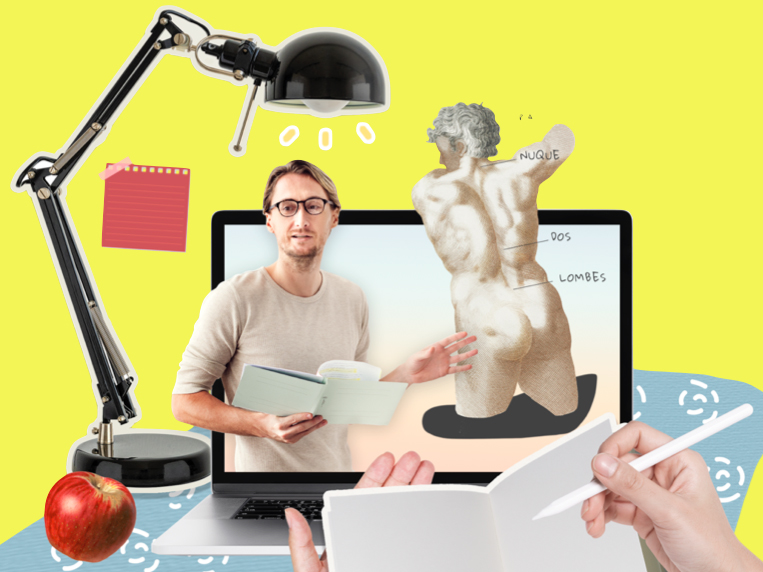
The thing is I’m constantly learning.
So, my ideas come from a lot of places. They come from documentaries, books, online courses, journal articles, the media, being out in the world and interacting with different people and places, audiobooks, and podcasts (just to name a few).
Every day, I set aside time to learn something new. Some days it will just be 15 minutes but I figure, it’s something. And learning something is always better than learning nothing.
Thanks to learning a little bit each day, I’m not the same person I was 10 years ago or even 10 days ago!
What I usually find is when I learn about a new topic, some aspect of my life improves. My mental landscape transforms. I experience a mindshift.
In her book Mindshift: Break through obstacles to learning and discover your hidden potential Dr Barbara Oakley states a mindshift is a deep change in life that occurs thanks to learning. That change can result from learning new skills or changing careers but also from changing your attitudes and relationships.
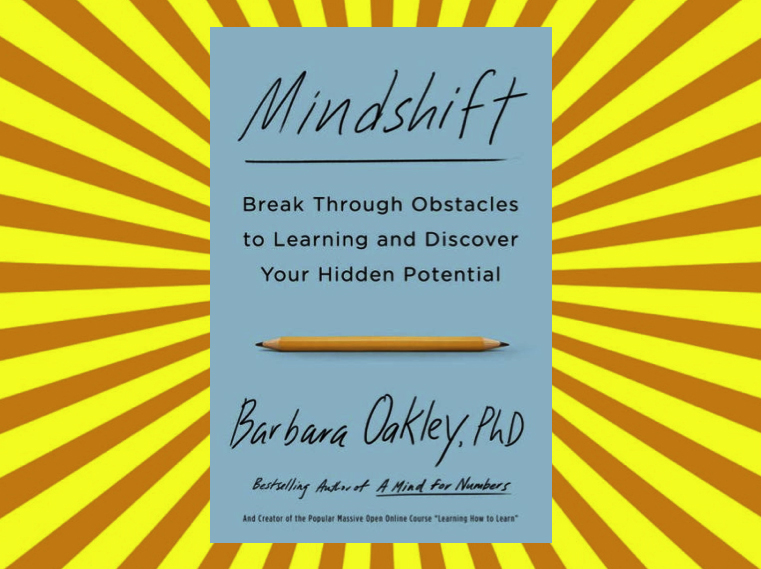
The thing is you’re never too young or old to experience a mindshift. You also don’t need to spend a lot of money (if any) to do so.
You see, there is no shortage of free or cheap information available online.
The challenge is sifting through all that information to find the good stuff.
The challenge is making the time to learn how to learn and deeply learn that information.
The challenge is getting comfortable with experiencing discomfort as you try to learn.
But becoming a lifelong learner is well worth the time and effort. Through the process of showing up to learn new things, you become more agile and mentally flexible. Life becomes more interesting and you do, too.
If you want to learn new things without formally enrolling in a university degree, here are my top tips for being a lifelong learner on a budget.
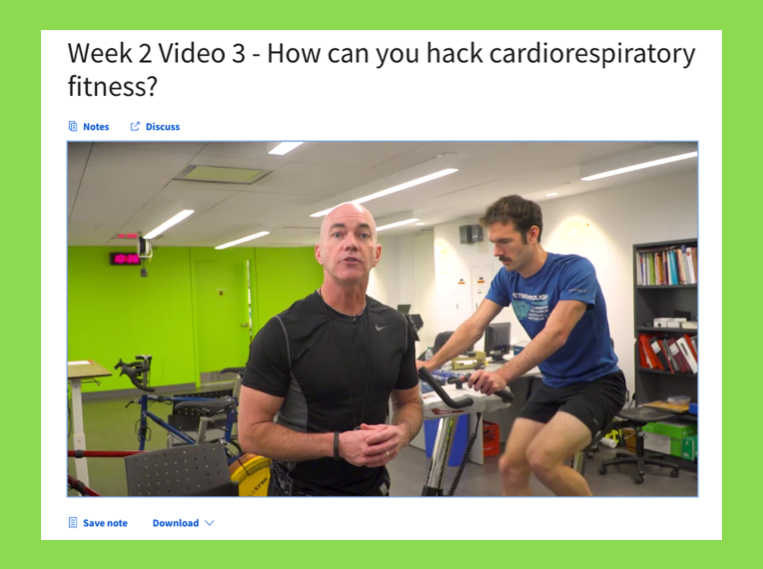
Thanks to the world of MOOCs, you can study at some of the best universities around the world without having to leave the comfort of your own home and spend any money.
To access MOOCs, you’ll need to have Internet connection, a notepad and pen. But that’s about it.
I recently participated in a fabulous free MOOC from McMaster University called Hacking Exercise for Health. This four week course was delivered by two exercise physiologists Dr Martin Gibala and Dr Stuart Phillips.
The course was packed full of cutting edge research on how to optimise cardio and resistance training as well as lots of practical tips. By the end of the course, I was able to devise my own workout programs.
This created a mindshift. How? Instead of paying a personal trainer to devise my workouts and paying for an expensive gym membership, I can now be my own trainer at home. This MOOC has just saved me a lot of money.
How can you find MOOCs that are a good match for you?
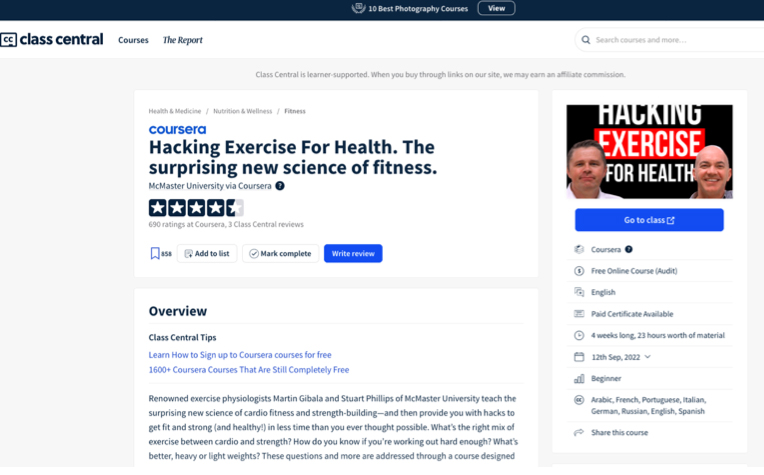
I recommend checking out Class Central. This is a website that provides ratings, reviews, and information on MOOCs. It will help you to select a MOOC that will best fit your needs.
If I’m interested in an expert’s work, I will check out their website. An academic’s website lists all their published academic papers but it also usually lists podcasts, books, talks, and radio interviews they have done.
For example, Dr Barbara Oakley’s website contains links to her upcoming public events, research papers, books, talks, and media appearances (e.g., podcasts and radio interviews).
If you find the person’s academic papers challenging to read, start by exploring interviews they’ve done and videos of their talks.
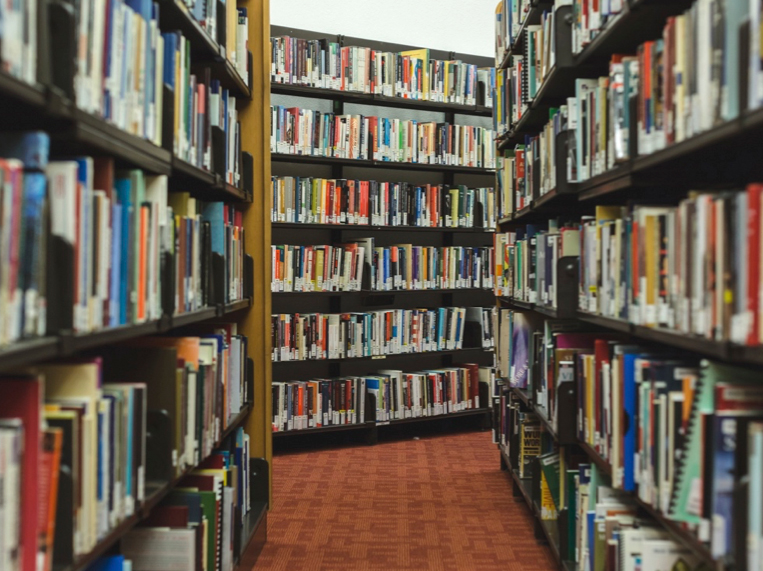
Books can change your life for the better. And libraries are full of life changing books that you can access for free.
I frequently go on book binges at my local library where I max out my library card. What have I got to lose?
If I don’t like a book, I can just stop reading it and move onto reading something else. At the end of the day, it costs me nothing.
If a book isn’t in your local library collection, ask the librarian if they can order it in on inter-library loan. You can also see if they will consider purchasing the book for their library collection (hey, there’s no harm in asking).
Over the last few years, I have saved hundreds of dollars as a result of my local library purchasing books that I have requested.
University libraries contain books that you wouldn’t normally find in your local community library. Anyone can go into a university library and look at the books.
Depending on the rules, you may not be able to take out a book, but you can photocopy a section from it or find a comfortable chair and start skim reading.

I recently decided I wanted to start running to improve my fitness. But I had no idea where to start. I hadn’t run long distances since doing cross country at school! I thought perhaps Reddit may have some useful ideas and advice.
On Reddit, I found several threads where people shared great advice, tools, and strategies for beginner runners (e.g., C25K program, run one song and then walk one song, useful stretches to do before you head off on a run, timer interval apps, etc).
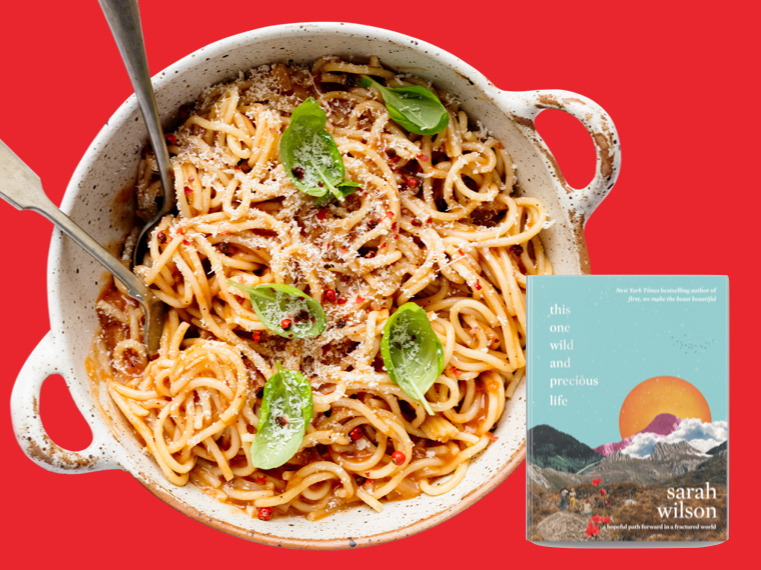
Before Covid hit, a group of friends and I would meet for dinner to discuss issues relating to the climate crisis. We would select an article or book to read before the dinner. Then, everyone would bring a dish to share and the reading material would form the basis for the dinner discussion.
These dinners were a nice way to connect with my friends on a topic that we were all concerned about. They also provided extra motivation to learn about challenging topics. If I’m hosting a dinner discussion, I better have read the article or book before my friends arrive!
Due to Covid concerns, my friends and I haven’t had a dinner discussion in a little while. But as the weather warms up, I’m hoping to host one of these events outside. There’s also the Covid safe option of meeting on Zoom.
There is no shortage of information or opportunities to expand your world through learning. Like anything in life, it’s about prioritising what’s important to you. Could you spend 20 minutes a day or one hour a week learning something new? And what would your life be like in 6 months’ time if you did?
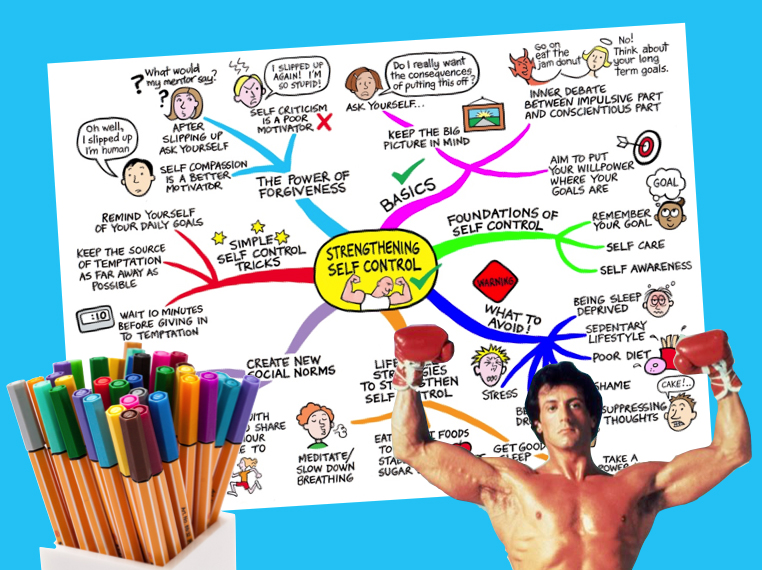
The funny drawings, the colour, and creativity can transform any dry subject into something that’s interesting for the brain.
But mind mapping is also a great life strategy. You can use it to create plans, capture ideas from books, set goals, clarify your thinking, organise your finances, and work your way out of messy situations.
Below I explore some different ways you can use mind maps in your day-to-day life.

Do you ever read books and then feel frustrated when you can’t remember much from them?
This is why I mind map out every non-fiction book that I read.
I know that there are limits to my memory. If I want to be able to extract ideas and strategies from a book and apply them to my life, I’m going to need to create mind maps.
There are two ways you can mind map a book:
1) You can mind map as you read: this forces you to slow down and really think about the ideas. I highly recommended doing this if the content is really complex. But this approach can be slow going!
2) You can mind map once you’ve finished reading: I use mini post-it notes to tab key ideas as I read. Once I’ve finished reading the book, I go back and mind map out the tabbed ideas. This way I have some perspective and can identify what’s important and what’s not (rather than assuming every sentence is important and needs to be mind mapped).
After I’ve finished mind mapping the book, I select a strategy that I’ve captured on the mind map to test out.
My husband has always been amazed at how I can take ideas from books and apply them to my life. But there’s no magic to this. I’m able to use lots of different strategies because mind mapping helps me to understand and remember them.
Let’s face it, if you can’t remember a strategy, you can’t use it!

Let’s say you have a test or exam coming up. Here’s how you can use mind maps to effectively prepare . . .
Push your notes and books to the side (you can’t look at them). Now grab a blank sheet of paper. Set a timer for 5 minutes and try to create a mind map on the main ideas you can remember.
Don’t try to make these mind maps look pretty. You’ve only got 5 minutes, so scribble and draw out as much as you can remember.
Once you’ve exhausted your memory, pull out your notes and pick a different coloured pen. Take a look at your messy mind map: What did you get right? What did you get wrong? Where are the gaps in your knowledge?
This strategy is called Active Recall and it’s the most effective way to retain information. You can read more about it here.
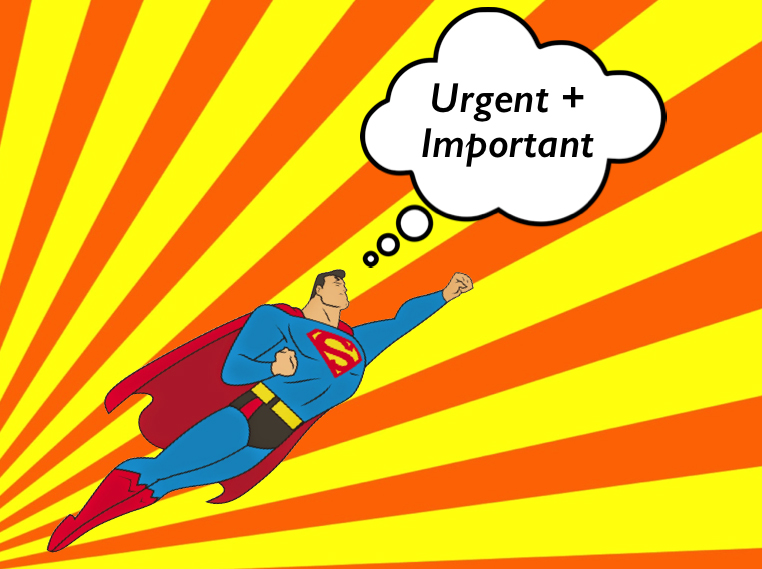
When you feel overwhelmed by life, everything can feel urgent and important. But not everything is urgent and important. A little prioritisation can save you a lot of stress and drama.
Grab a big sheet of paper, draw a circle in the middle, and write inside it Stuff to do. Now get everything out of your head and on to the page!
Once you’ve finished your mind map, look over all the tasks.
If a task is important, give it a tick.
If a task is urgent, circle it.
Focus your energy on knocking off the tasks that have ticks and circles around them (they are urgent and important).

Research shows the more connected you are to your Future Self, the more committed you will be to achieving your goals and the wiser decisions you will make in the present.
Draw a circle in the middle of page and write inside it My Future Self. You can create branches for your Future Self in:
• 3 months’ time
• 6 months’ time
• 1 year’s time
• 3 years’ time
• 5 years’ time
Then off each of these main branches, write down your goals. What do you want to have accomplished by this time?
As Dr Benjamin Hardy states in his book Be Your Future Self Now:
“The clearer you are on where you want to go, the less distracted you’ll be by endless options.”
Note: Imagining your Future Self is not an easy thing to do. We are terrible at imagining where we are going to be in the future. So, don’t overthink it. Just get some ideas down on paper. As you gain more clarity around your goals and values, you can always add extra branches to your mind map.
I’ve found mind mapping to be a fun and effective way to capture, organise, and retain information. Even if I never look at the mind map again, the process of getting ideas down on paper makes a big difference. It helps me to feel more in control and on top of things.
If you need some clarity in a particular area, stop ruminating. Pick up a pen and start mind mapping!
Dr Jane Genovese delivers interactive and engaging study skills sessions for Australian secondary schools. She has worked with thousands of secondary students, parents, teachers and lifelong learners over the past 15 years.
Get FREE study and life strategies by signing up to Dr Jane’s newsletter:
© 2025 Learning Fundamentals